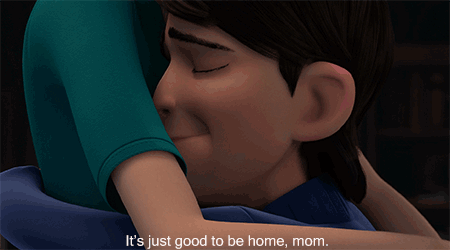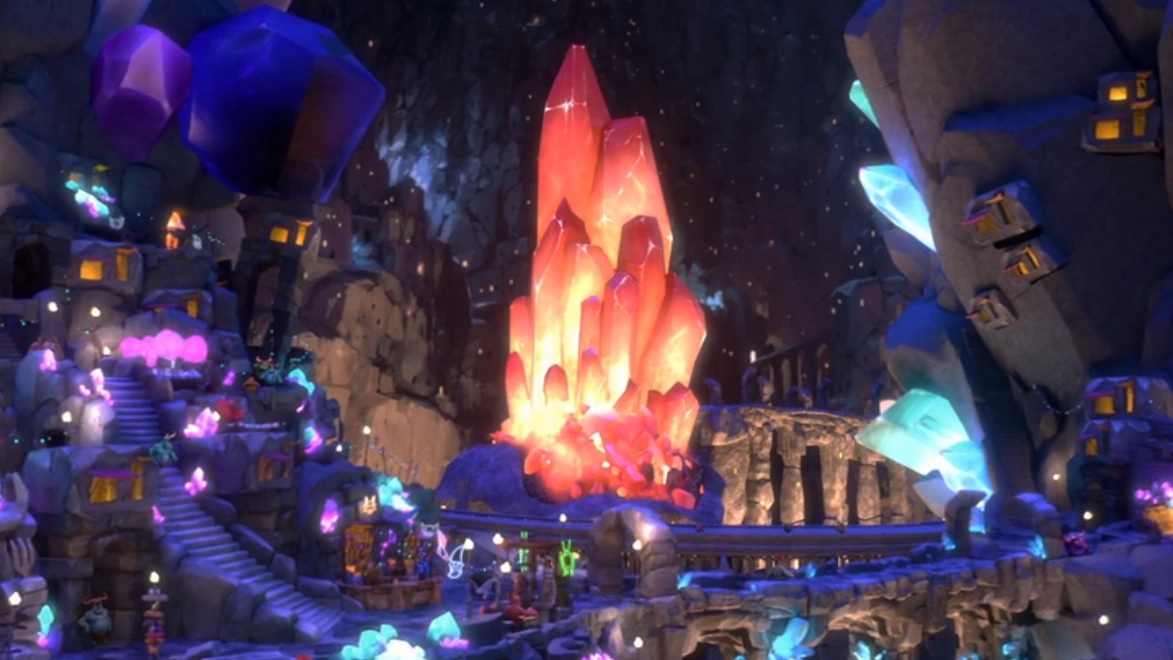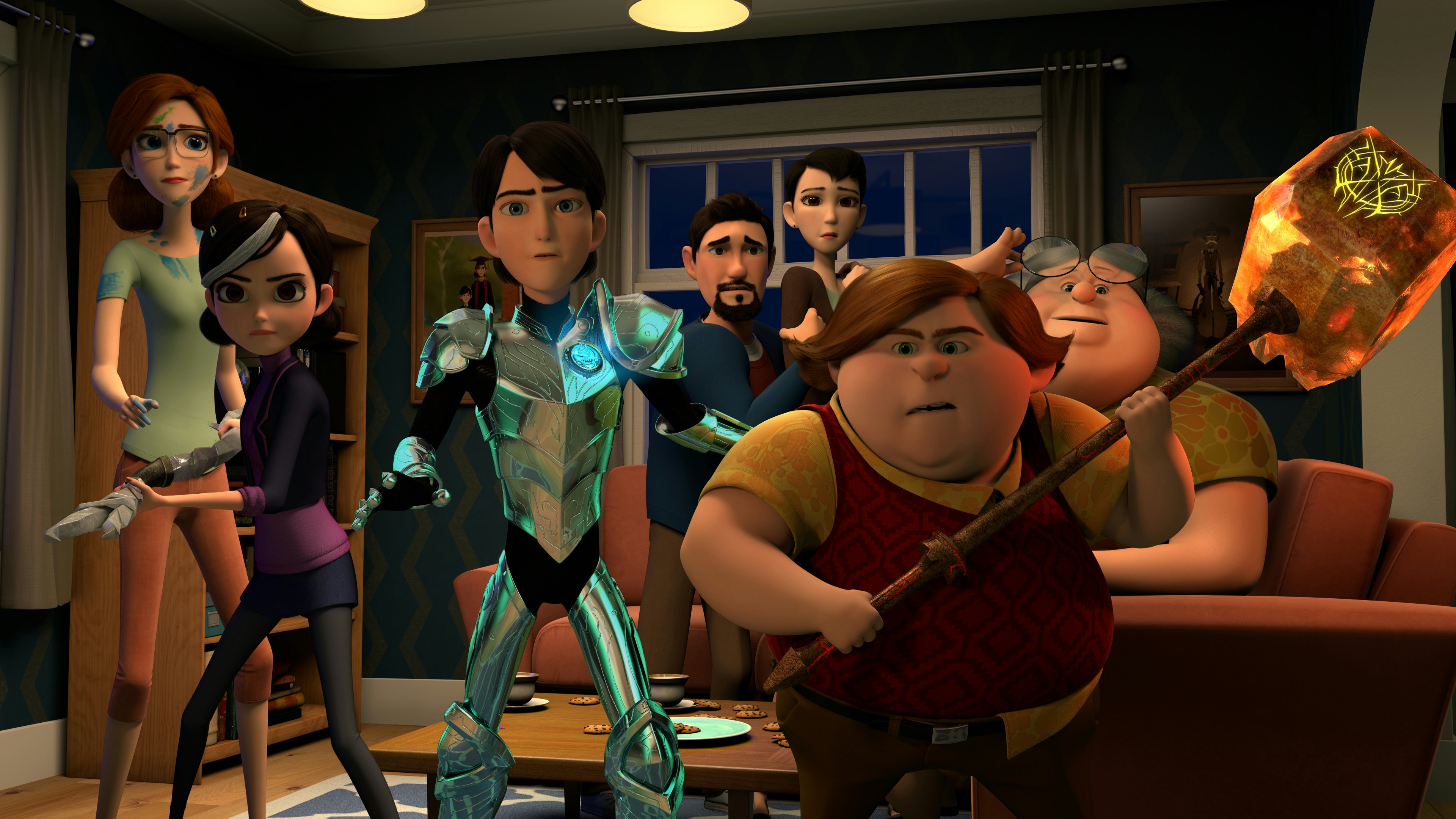Writing Tips from Trollhunters
Trollhunters is one of my all time favorite shows. It's well written, it breaks your heart, there are trolls, what's not to love? I've talked about it before, but today we're going to be looking at writing lessons we can learn from this awesome show. (Bonus, all the episodes are twenty minutes long, so you can binge them a lot faster than the kind with forty-five minute long ones.)
Spoiler alert for point four!
1. Build a strong world
One of the best things about Trollhunters is the amazing world they built. The trolls have their own culture, there are a lot of rules about magic and being a trollhunter. Even better, this cool troll world is combined with our normal human world right above it. I love how they designed all their trolls and goblins and the way they live and act.
In a fantasy novel, your world is highly important. It may not make a big appearance in the novel, but it's the foundation of everything else. Especially if you're going to have magical creatures be a part of your story. They need their own culture and rules and you've got to take the time to design them.
2. Good guy hero
The main character of this show is Jim Lake Jr., and he's a good guy. He works hard at everything he does and fights for good because it's the right thing to do. This goodness gets him trouble throughout the show, as he sometimes can't take the step needed to win, but this same goodness is why we love him. His dad left him as a kid, he takes care of his mom, and he fights trolls at night, and yet he's always smiling.
 |
| Just look at this precious child |
There's a big push of gray heroes anymore, but I say we need more heroes like Jim or Captain America, who are good just because. It's a lot harder to be a good person in this world than it is a bad one. Why does your hero fight their fights? Do they do it for ambition? Love? Power? Or just because it's the right thing? Sometimes that motivation can be just as powerful.
3. Complex conflict
At it's core, Trollhunters is a basic good versus evil conflict. But there's so much more to it than that. There are multiple bad trolls that he has to fight, as well as goblins and at first, changlings. As the story progresses, things get more complicated. People change sides. Right and wrong get harder to define. They could have left it as your basic "these guys are good, these ones are bad" kids show, but they didn't.
How can you make your conflict more complex? Can you add a character who makes the hero question things more? Villains that push the heroes to make hard choices? Situations that there is no right answer and what that does to your hero? Don't stop at basic, keep brainstorming until you have something deep and meaningful.
 |
| I'm still mad about this, but I do admire them for being brave enough to pull it off. |
4. Give it to the hero
Another great thing about this show. It never backs away from pushing Jim to his breaking point, even when I wish it wouldn't. The poor kid goes through the wringer. He loses friends and companions. He has to fight people he trusted. And in the end, he even has to make the choice to completely change himself to win the day. It's so hard to watch sometimes, but he still manages to come out the other side.
Always find ways to push your hero has far as they can go. It's when humans are at their breaking point that they show what they're really made of it, and it will improve your story a lot. Don't do this all the time, as that quickly becomes boring, but save it for when the story needs it most. Bonus if you can think of a way to take away the things they love the most before they can win. (Harsh, but useful sometimes.)
5. Flesh out characters
At the beginning of the show, a lot of the characters are kind of flat caricatures. As the episodes and seasons go on, a lot of them gain more depth, and thus become more interesting to us. Toby, his sidekick, turns out to be an orphan. The school bully we find out is dealing with a divorce and stepdad at home. Even the creepy changling woman has more to her than that. By taking the time to flesh out these characters, we can root for them more.
| They're dorks, but I love them |
If you have a series with a large cast, consider taking time to flesh out more of the side characters as the books go on. People are always interested in learning more about characters. Show us why people act the way they do, or what they're really like. This is especially powerful with villains, creating more sympathy for them (if that's your goal).
Have you used any of these writing lessons? Have you watched Trollhunters (because you really need to)? Tell me in the comments.
Suggested Posts:
5 Reasons to Watch Trollhunters
Writing Lessons from Classic Star Trek










Comments
Post a Comment